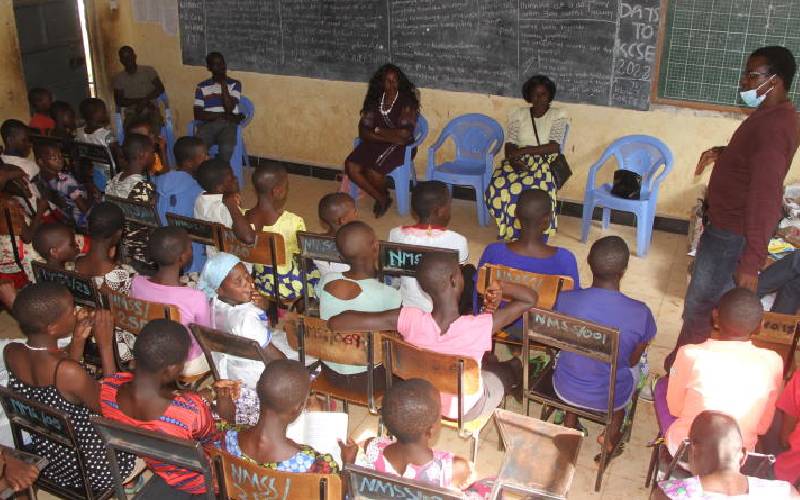×
The Standard e-Paper
Home To Bold Columnists

Mr Charles Olwamba from Amref addressed over 100 girls who have been rescued from undergoing the Female Genital Mutilation on December 22, 2021, at Nyangoge Mix secondary school in Kuria West sub-county. [Caleb Kingwara, Standard]
Donning hats and lesos and carrying umbrellas, young girls are seen marching along the Migori-Sirare road. The girls, escorted by their parents, are marching to a place where, at the end of the day, they will undergo female genital mutilation (FGM).